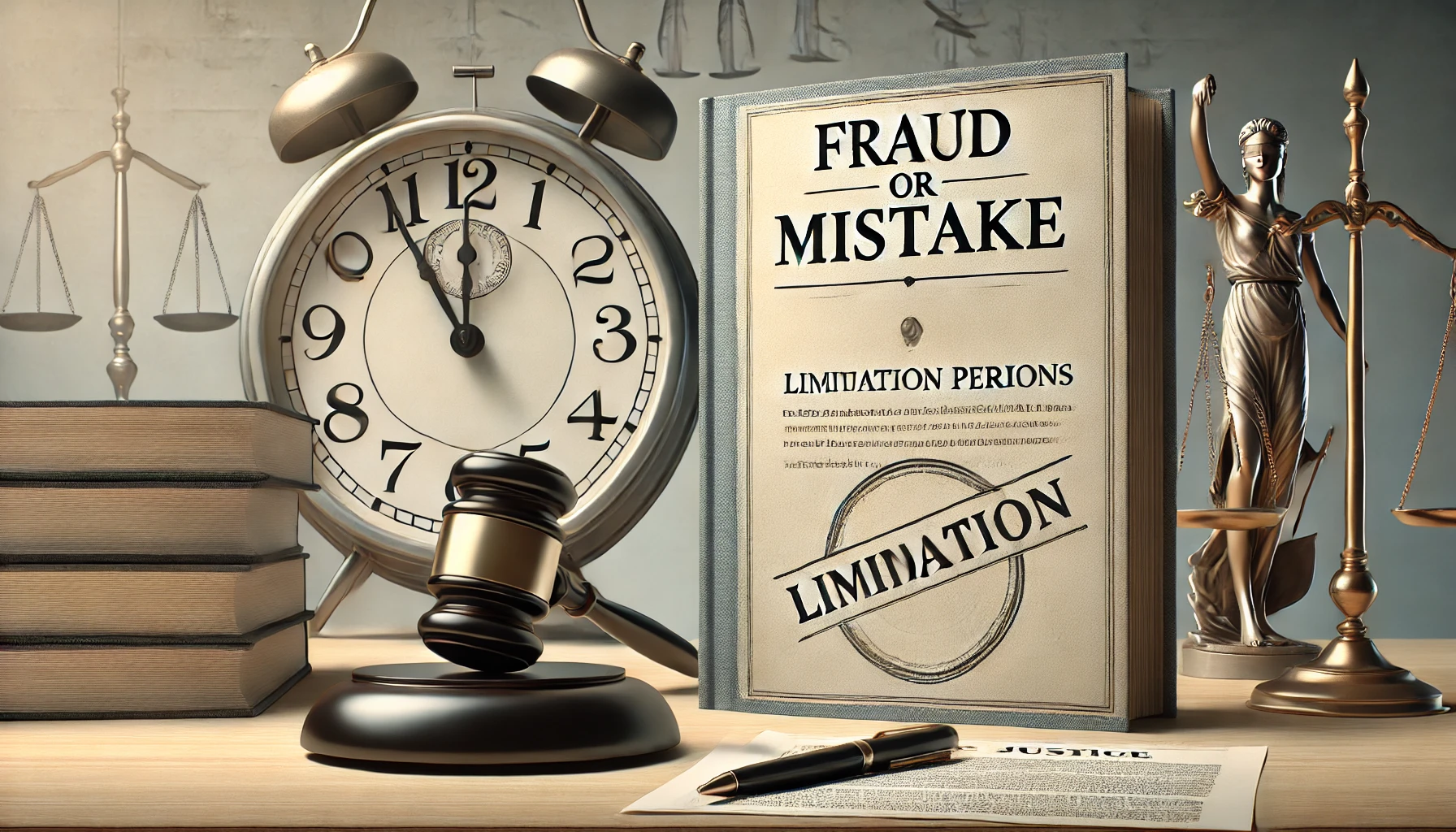Section 17 deals with the impact of fraud or mistake on the commencement of the limitation period.
Key Points:
1. Fraud:
- Subsection (1): If a suit or application is based on the fraud of the defendant, the limitation period starts from when the plaintiff discovers the fraud or could have discovered it with reasonable diligence.
- This ensures that victims of fraud are not unfairly barred from seeking redress due to the concealment of the fraudulent act.
2. Mistake:
- Subsection (1): For suits or applications based on a mistake, the limitation period starts from when the plaintiff discovers the mistake or could have discovered it with reasonable diligence.
- This allows plaintiffs to seek redress for errors that were not immediately apparent.
3. Concealed Documents:
- Subsection (1): If the cause of action is concealed by the defendant, the limitation period starts from when the plaintiff discovers the concealment or could have discovered it with reasonable diligence.
- This provision applies to situations where the defendant has intentionally hidden relevant facts or documents.
4. Specific Cases Involving Trust Property:
- Subsection (2): In suits involving trust property, the limitation period starts from when the plaintiff discovers the fraud or breach of trust, even if the trustee concealed it.
- This ensures that trustees cannot exploit their position to shield themselves from liability for fraudulent acts or breaches of trust.
5. Applicability to Legal Representatives:
- Subsection (3): The provisions regarding the commencement of the limitation period due to fraud, mistake, or concealment apply to legal representatives and assigns of the plaintiff.
6. Purpose:
- Section 17 aims to provide relief to parties who have been wronged by fraud, mistake, or concealment, ensuring they have an opportunity to seek justice once the wrongful act is discovered.
- It prevents wrongdoers from benefiting from their fraudulent or deceitful actions by concealing the cause of action.
7. Illustration:
- If A discovers a fraudulent act by B on January 1, 2020, but the fraud occurred on January 1, 2018, and the limitation period is three years, the period starts from January 1, 2020, allowing A to file a suit by January 1, 2023.
- If A discovers a mistake in a contract on January 1, 2020, that was made on January 1, 2018, the limitation period starts from January 1, 2020, allowing A to file a suit by January 1, 2023.
By detailing these provisions, Section 17 of the Limitation Act, 1963, ensures that the limitation periods account for the impact of fraud, mistake, or concealment, thereby protecting the rights of parties and ensuring fair access to justice.

